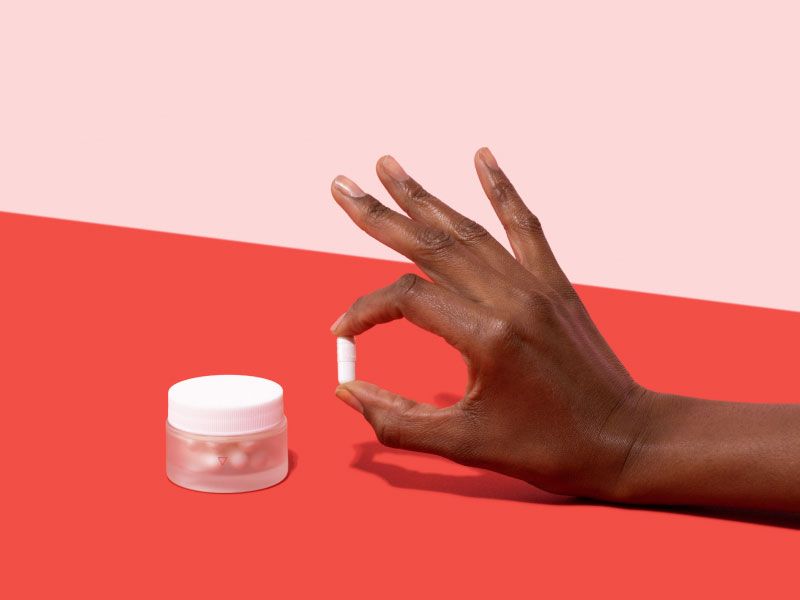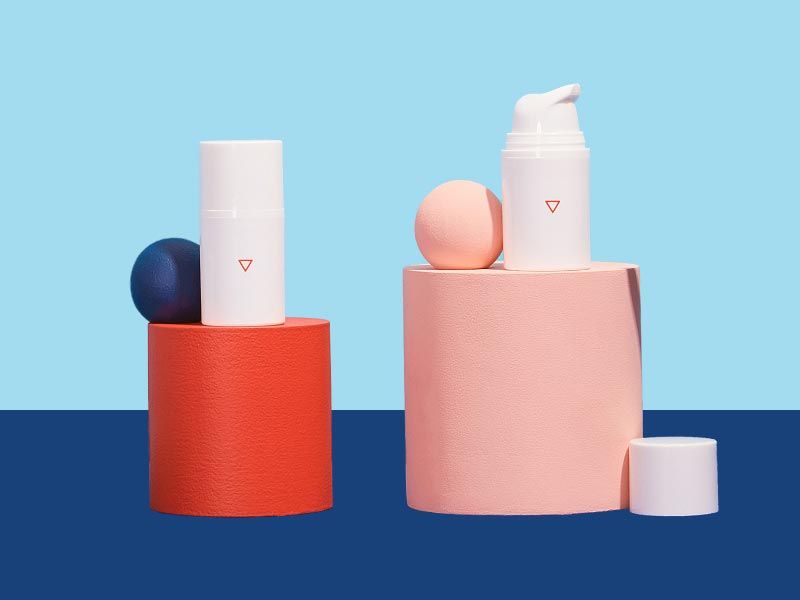
Why Do I Keep Getting
Bacterial Vaginosis (BV)?
Published on July 26, 2020
Updated on February 18, 2025
Written by Kathleen Morrison
Medically Reviewed by Andrea Sleeth WHNP-BC, MSCP
Dealing with BV again? You’re not alone—and it’s not your fault. BV is one of the most common vaginal infections, and while it can be frustrating when it keeps coming back, understanding the triggers can help you stay one step ahead. By knowing what causes BV, identifying the patterns, and finding the right treatments, you can take control of your vaginal health with confidence.
Why Does My BV Keep Coming Back?
Recurrent bacterial vaginosis is frustrating—we know. Many people experience BV more than once, and while antibiotics for BV can provide relief, symptoms sometimes return within a few weeks or months.
That’s because your vaginal microbiome is sensitive to small changes in hormones, hygiene habits, and even sex. When things get thrown off balance, BV-causing bacteria can take over again.
The good news? Understanding your triggers can help you stay ahead of it.
Factors like stress, smoking, and scented products can make BV more likely, while habits like douching or frequent antibiotic use can wipe out the protective bacteria that keep your vagina healthy. By paying attention to what affects your body, you can take simple steps to reduce your risk and feel more in control of your health.
Imbalance of Vaginal Bacteria
BV happens when harmful bacteria in the vagina (like Gardnerella vaginalis) overgrow, outnumbering the protective lactobacilli that keep your pH in check. Things like antibiotics, hormonal changes, and certain lifestyle habits can disrupt this balance, making it easier for BV to return.
Supporting a healthy vaginal environment—like using gentle hygiene practices and avoiding unnecessary antibiotic use—can help.
Lifestyle and Hygiene Habits
Your daily routines can have a bigger impact than you might think. Harsh soaps, scented products, and douching strip away your vagina’s natural defenses making it easier for BV to take hold. Even wearing tight or synthetic underwear can trap moisture and create an ideal environment for bad bacteria.
Opting for breathable fabrics, fragrance-free products, and a gentle cleansing routine can help keep things balanced in your day-to-day.
Sex and pH Changes
Getting down and dirty can shift your vaginal pH, making it less acidic and giving those BV-causing bacteria the upper hand. Semen, for example, is more alkaline, which can disrupt your microbiome.
New or multiple sex partners can introduce different bacteria, which could make BV more likely to occur. Using condoms, being mindful of your post-sex hygiene (don’t forget to pee!), and having open conversations with your partner can all help lower the risk of recurring infections.
It’s also important to make sure your sex toys are properly cleaned after every use.
What if I’m Doing Everything Right?
If you develop bacterial vaginosis over and over again despite following all the advice, you’re still not alone. While things like being sexually active, your hygiene habits, and antibiotics can play a role, sometimes BV comes back for reasons that have nothing to do with your lifestyle.
Your body’s natural rhythms—like hormonal shifts, immune responses, and even genetics—can make you more prone to recurring infections.
That doesn’t mean you have to be stuck in an endless cycle. Tracking the patterns (like whether symptoms flare up around the start of your menstrual cycle or during stressful times) can help you and your doctor find a treatment plan that works with your body, not against it.
Understanding these natural influences can also open the door to finding the supportive options you need, like probiotics or adjusting your treatment timing. Whatever it takes to help break the cycle.
Hormonal Changes
Your hormones affect everything from your mood to metabolism—and yes, even your vaginal microbiome. Fluctuations in estrogen and progesterone can impact the balance of lactobacilli (the good bacteria that help keep BV at bay).
Some people notice their BV symptoms return around their period, after hormonal birth control changes, or even during times of high stress. While hormones aren’t always in your control, being aware of their influence can help you time your treatments more effectively.
Genetics and Immune Response
Some people are simply more prone to BV, thanks to their genetic makeup (really, thanks).
Research suggests that certain genetic factors influence how the body maintains and restores healthy bacteria. If BV keeps coming back no matter what you do, it could be because of some inherited traits that affect your vaginal microbiome. Sorry about that.
While you can’t change your DNA, simply being aware can help guide a more personalized approach to dealing with it—whether that’s long-term management strategies or more specialized treatments to show BV who’s boss.
How to Keep Bacterial Vaginosis from Coming Back
This is frustrating, but small, consistent changes can make a big difference. Instead of constantly treating flare-ups, the goal is to create a vaginal environment where good bacteria thrive—so BV has a harder time coming back. Generally, this approach involves a whole lot of self-love and mindfulness.
But even with great self-care, occasional flare-ups can still happen due to hormonal shifts or other natural factors. Tracking patterns—like noticing symptoms around your period or during stressful times—can give you insight into what’s triggering recurrences. And if you’re still struggling, talking to a healthcare provider (including via telehealth!) can help uncover underlying causes and create a treatment plan that works for your body.
For now, here’s what to focus on:
Gentle Hygiene is Key
Your vagina is self-cleaning, so less is more when it comes to washing. Stick to warm water and mild, fragrance-free soap on external areas—douching and harsh cleansers can disrupt good bacteria.
Cotton underwear and changing out of sweaty or damp clothes ASAP can also help manage bacterial imbalances.
Safe Sex Matters
Using condoms can help reduce the introduction of new bacteria during sexual intercourse. If you have recurring infections, consider talking openly with your partner(s) about symptoms, STI (sexually transmitted infection) testing, and overall vaginal health—it’s a team effort!
Keep in mind that hygiene is important even if you’re going it alone—your sex toys should always be cleaned properly (even if you’re the only one using them).
Lifestyle Tweaks
Your body’s overall wellness affects your vaginal health, too. Eating a balanced diet (and cutting back on excess sugar), getting enough sleep, and managing stress can all help keep your immune system strong.
Practices like yoga, meditation, or even daily walks can help reduce stress which could lead to supporting your body’s natural ability to maintain a healthy vaginal microbiome.
Treatment Options for BV
When it comes to treating BV, you’ve got options. While antibiotics (in pill or gel form) are commonly prescribed to help restore balance in the vaginal flora, some people find that BV comes back soon after finishing treatment.
If you’re dealing with repeat infections, adding probiotics—whether through supplements or probiotic-rich foods—might help maintain a healthy balance of good bacteria. Finding what works for you could take some time, and it’s all about factoring in your unique health needs and personal comfort.
Emerging treatments like boric acid suppositories may also be worth considering—but these should always be used under a provider’s supervision for safety. And if you’re not keen on frequent in-person visits, telehealth services (like Wisp!) are a game-changer. You can chat privately with a healthcare professional who can offer personalized treatment suggestions without the hassle of extra appointments.
Remember that it’s important to always finish any prescribed course of antibiotics. Stopping early can leave harmful bacteria behind, leading to more frustration. If you find the initial treatment isn’t working for you, or if side effects pop up, don’t hesitate to talk to your healthcare provider. They can help adjust your plan to make sure you’re on the right track.
Potential Complications of Untreated BV
Unfortunately, if BV isn’t treated, it can lead to other health concerns.
- Higher risk of STIs: An unbalanced vaginal environment can make it easier for harmful bacteria, like those linked to gonorrhea or chlamydia, to take hold.
- Pelvic inflammatory disease (PID): Untreated BV can lead to PID, which can damage reproductive organs and, in severe cases, affect fertility.
- Pregnancy complications: For pregnant individuals, untreated BV raises the risk of premature birth and other complications.
- Ongoing distress: Ignoring recurring BV symptoms can lead to frustration and uncertainty.
This is why it’s important to:
- Maintain healthy hygiene: Keeping things at a normal balance down there can help manage issues.
- Use protection: Safe sex practices reduce the risk of introducing harmful bacteria during intercourse.
- Seek timely guidance: If symptoms persist, reaching out to a healthcare provider can help address any concerns.
- Take on some lifestyle changes: Wearing breathable underwear and managing stress can make a big difference in reducing the risk of complications.
- Stay in tune with your body: Look out for unusual odors, changes in your vaginal discharge, or discomfort so you can address problems early.
Taking Control of Your Vaginal Health
BV can be frustrating, especially when it keeps coming back. Everybody’s body is different, so it may take some trial and error to find what works best for you. But the good news is that there are small, manageable steps you can take to help reduce the chances of recurring BV.
Things like using barrier methods during sex, cleaning sex toys properly, and avoiding harsh products seem small, but they can all make a big difference. You can also support your body by doing what you can to manage stress and optimize your diet. Paying attention to any patterns—like flare-ups tied to hormonal changes—can help you refine your prevention plan and feel more in control.
This doesn’t have to be an endless cycle; you can stop bacterial vaginosis in its tracks. Working closely with a provider can help you explore new treatment options, whether it’s trying a different medication, adjusting your diet, or using maintenance therapies once the infection has cleared.
At Wisp, we’re here to make this process easier, offering discreet, customized care right from home—so you don’t have to worry about the hassle of in-person visits.
Wisp treatment options are available only after consultation with a licensed medical professional. You should consult with your healthcare provider before starting a new supplement or treatment regimen. Individual results may vary.
This blog post is for informational and educational purposes only and should not be taken as professional advice. Always consult with a qualified professional before making any decisions based on the information provided here.




